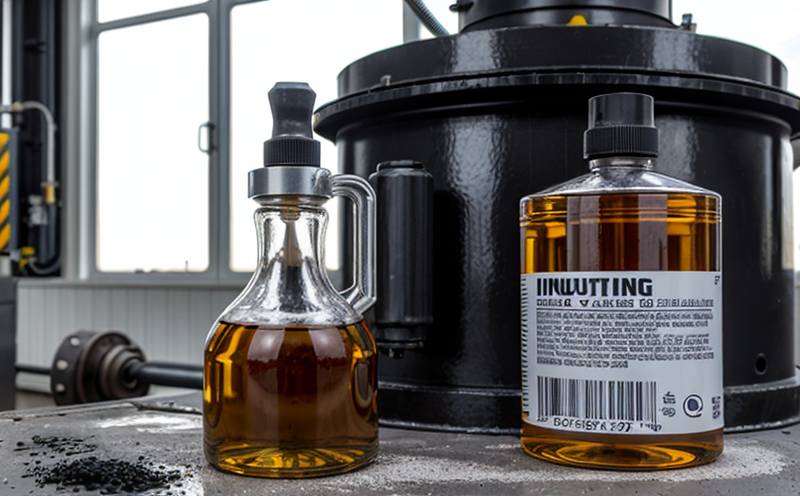EN ISO 12156 Lubricity Testing of Diesel Fuels
The EN ISO 12156 standard is designed to evaluate the lubricity properties of diesel fuels, which are crucial for minimizing wear in fuel injection systems and improving engine performance. This test ensures that the fuel meets stringent requirements set by international standards, thereby safeguarding engine durability and reducing maintenance costs.
During the testing process, a standardized brass block is rubbed against a steel plate using the diesel sample under controlled conditions. The frictional resistance between these surfaces provides an indication of the lubricity performance. A lower coefficient of friction indicates better lubricity, which is essential for preventing wear and tear in high-pressure fuel injection systems.
This test is particularly relevant for manufacturers and suppliers of diesel fuels who must comply with regulatory requirements to ensure their products meet quality standards. By adhering to this standard, companies can enhance the reliability and longevity of engines used in various sectors such as transportation, agriculture, and construction.
The procedure outlined in EN ISO 12156 involves precise measurement techniques to determine the lubricity index. This ensures that fuel suppliers are not only meeting regulatory requirements but also contributing to a safer environment by reducing the potential for engine damage due to poor lubrication.
For quality managers and compliance officers, this test provides critical insights into the performance of their products. R&D engineers can leverage these results to refine formulas and improve fuel formulations. Procurement teams benefit from knowing that they are sourcing fuels that meet rigorous international standards.
Industry Applications
| Industry Sector | Application Details |
|---|---|
| Agriculture | Evaluating the impact of fuel additives on engine longevity in agricultural machinery. |
| Transportation | Determining the effectiveness of diesel fuels in reducing wear and tear in passenger cars and commercial vehicles. |
| Construction | Assessing fuel lubricity to ensure optimal performance of heavy construction machinery. |
| Military | Evaluating the suitability of diesel fuels for military vehicles under extreme conditions. |
| Maritime | Ensuring that marine engines operate efficiently with reduced wear and tear over extended periods at sea. |
Why Choose This Test
The EN ISO 12156 lubricity test is an essential tool for quality assurance in the production and supply of diesel fuels. By ensuring that fuel meets or exceeds the specified standards, companies can enhance their reputation for reliability and safety. This test plays a pivotal role in preventing wear and tear on critical engine components, thereby extending the operational life of vehicles and machinery.
For manufacturers and suppliers, compliance with this standard is not just about meeting regulatory requirements but also about demonstrating commitment to excellence. It allows them to differentiate their products in a competitive market by offering fuels that are proven to perform consistently under rigorous conditions.
The test results provide valuable data for ongoing research and development efforts. Engineers can use these insights to improve fuel formulations, enhancing both performance and environmental friendliness. For procurement teams, this ensures they are sourcing the highest quality fuels, which translates directly into cost savings and improved operational efficiency.
By choosing this test, companies also contribute to a broader goal of sustainability by reducing waste and promoting efficient use of resources. This aligns with growing industry trends towards more sustainable practices and environmentally friendly operations.
Environmental and Sustainability Contributions
The EN ISO 12156 lubricity test contributes significantly to environmental sustainability by promoting the use of fuels that minimize wear on engines. This reduction in wear translates into lower emissions, as less fuel is required for the same performance levels. Cleaner burning engines contribute positively to air quality and reduce carbon footprints.
By ensuring that diesel fuels meet strict lubricity standards, this test supports efforts towards reducing engine-related pollution. It also encourages the development of cleaner fuel additives that can enhance both performance and environmental impact. This aligns with broader global initiatives aimed at reducing greenhouse gas emissions and promoting sustainable energy use.
Companies that adopt these testing practices are not only contributing to a healthier environment but also positioning themselves as leaders in sustainability. This is particularly important in industries where fuel consumption has a direct impact on environmental health, such as transportation and construction.





